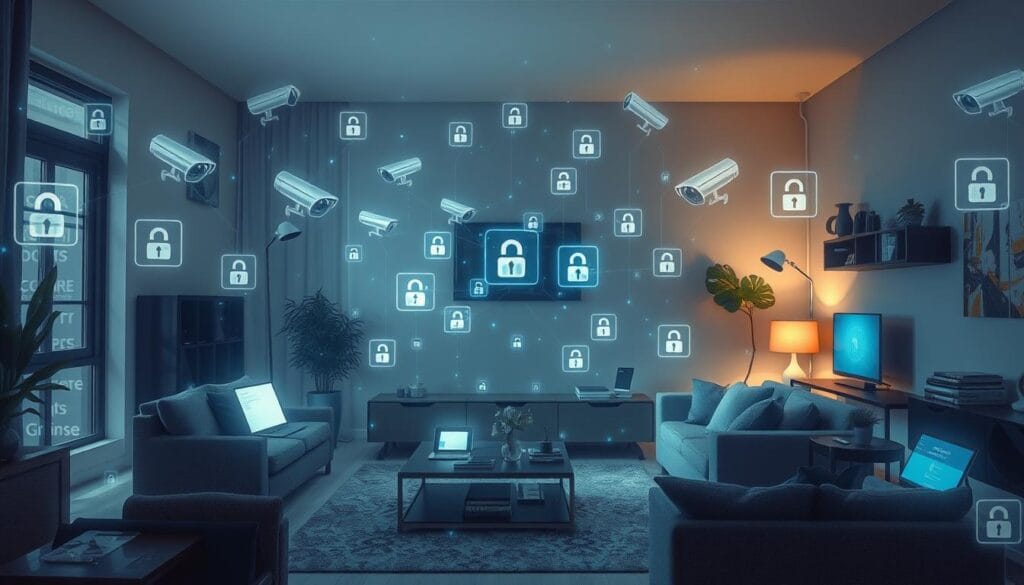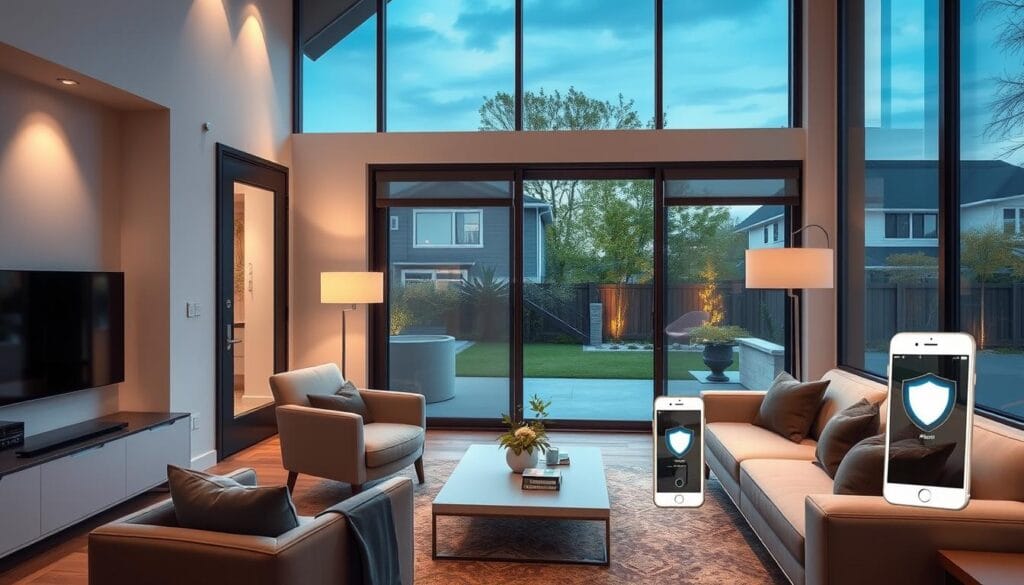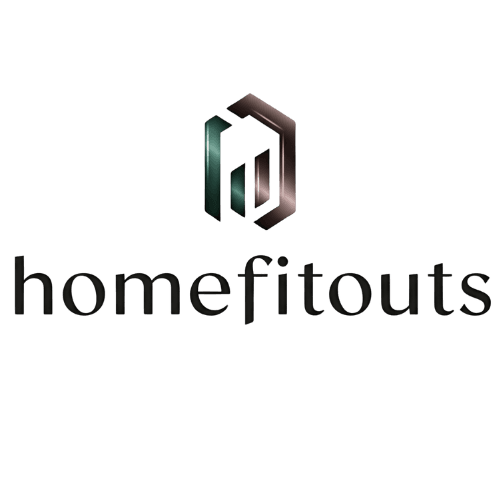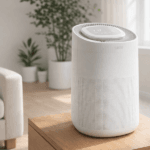Smart homes are changing our lives for the better. They make things easier and more efficient. But, we must think about privacy issues with these new technologies.
Devices in smart homes can collect our data. This raises big questions about security. A recent study found many IoT devices have big problems.
The smart home market is growing fast. It was worth $38.50 billion in 2017. By 2023, it’s expected to hit $125.07 billion. This growth means more devices and more risks to our privacy.
It’s important to know about these risks. Things like data theft and device hijacking can happen. But, we’re here to help you understand and protect your smart home.
Key Takeaways
- Smart homes expose sensitive data through local network interactions
- IoT devices can reveal unique identifiers, making homes easily identifiable
- The global smart home market is growing rapidly, reaching $125.07 billion by 2023
- Privacy concerns are a significant barrier to smart home adoption
- Implementing security measures can help protect your smart home privacy
Understanding Smart Home Technology
Smart home tech is changing how we live. More homes now have devices that make our lives better. Let’s learn what makes a home smart and explore home automation.
Definition of a Smart Home
A smart home uses IoT devices for an automated space. It uses tech to make homes more comfortable, efficient, and safe. With just a button or voice command, you can control your home.
Common Smart Home Devices
There are many smart home devices. Here are some popular ones:
- Intelligent thermostats for better energy use
- Smart lighting for any mood
- Security cameras for watching your home
- Voice assistants for easy control
- Smart appliances for more convenience
How Smart Home Systems Work
Smart home systems connect devices in a network. These IoT devices gather data, process it, and act on it. A central hub or app controls everything, making home automation easy.
“Smart home technologies improve comfort, energy use, security, and ease of use. They show the benefits of automation and remote control in homes.”
But, we must think about privacy. Smart devices collect data, like what we say and see. This makes 55% of people very worried about their personal data.
The Rise of Smart Home Adoption
Smart home market growth is amazing. More people are making their homes smart. This change is changing how we live and interact with our homes.
The global smart home market is expected to reach $182.4 billion by 2025. It will grow at a rate of 11.6% each year from 2020 to 2025.
Many things are driving this growth. Saving energy is a big reason. Smart thermostats like Nest can save 10-12% on heating and 15% on cooling bills.
Security is also a big reason. The smart home security market is expected to more than double. It will go from $21.6 billion in 2021 to $44.3 billion by 2026.
But, there are worries about privacy. A lot of IoT device traffic is not encrypted. This could mean our personal data is not safe.
| Aspect | Statistic |
|---|---|
| Market Size (2025 Projection) | $182.4 billion |
| CAGR (2020-2025) | 11.6% |
| Energy Savings (Heating) | 10-12% |
| Energy Savings (Cooling) | 15% |
| Security Market Growth (2021-2026) | $21.6B to $44.3B |
| Unencrypted IoT Traffic | 98% |
As we enjoy the benefits of smart homes, we must also protect our privacy. The future of smart home technology depends on solving these privacy issues. We must keep improving our homes while keeping them safe.
Benefits of Smart Home Technology
Smart home tech makes our lives better. More people are using it for its ease, saving energy, and better security.
Convenience and Automation
Smart homes make life simpler. We can control things like lights and thermostats with our phones. It’s cool to change your home’s temperature before you get there or start coffee from bed.
Energy Efficiency
Smart homes save a lot of energy. Smart thermostats adjust the temperature based on when we’re home. Lights turn off when we leave. This can lower our electricity bills by 15% each year.
Enhanced Security Features
Smart tech makes our homes safer. We can watch our homes live with security cameras and get alerts for strange sounds. Smart locks let us control who comes in, making our homes even safer.
| Feature | Benefit |
|---|---|
| Smart Thermostats | Up to 15% energy savings |
| Remote Control | Manage home from anywhere |
| Security Cameras | Real-time monitoring |
Even though smart home tech costs a lot at first, the long-term benefits are worth it. It brings comfort, security, and saves energy, making it a good choice for many homeowners.
Smart Home Privacy Concerns
Smart homes make life easier, but they also have big privacy problems. We need to watch out for leaks of personal info and risks of being watched.
Many people, 62%, think it’s hard to keep their data safe in smart homes. This worry is real, as a study found 72 out of 81 IoT devices share info with others.

- 25% of the market hesitates due to data privacy concerns
- 48% of non-adopters express concern about data security
- 72% are concerned about personal data collected by devices
Even those who use smart home devices worry about privacy:
- 55% worry about hackers
- 39% fear unauthorized access by tech companies
These numbers show we need better security and clear info in smart home tech. As users, we must learn and protect our privacy in a world that’s getting more connected.
| Concern | Percentage |
|---|---|
| Impossible to keep data private | 62% |
| Worried about personal data security | 72% |
| Fear of hackers | 55% |
| Fear of unauthorized access by tech companies | 39% |
Data Collection and Usage in Smart Homes
More homes are getting smart, and data collection is growing fast. Soon, we’ll see a big jump in smart device users. This change brings us both good things and risks to our privacy.
Types of Data Collected
Smart devices collect lots of info about our lives. For instance:
- Amazon’s Alexa collects 28 out of 32 possible data points
- Google’s Home app gathers 22 data points
- Outdoor security cameras collect the most user data among smart home devices
How Companies Use Smart Home Data
Companies use this data in many ways. Some do it to help us, but others make us worry:
- 1 in 10 smart home apps collect data for user tracking
- The Keurig coffee machine app gathers more than double the average data points
- Security camera apps collect 50% more data points than other smart devices
Potential Risks of Data Misuse
The big amount of data collected in smart homes has risks:
| Risk | Description |
|---|---|
| Outdated Practices | Many apps don’t regularly update their data collection practices |
| Hacking | Outdated practices leave users vulnerable to hacking |
| Data Theft | Personal information can be stolen if not properly protected |
| Invasive Profiling | Detailed data can be used to create invasive user profiles |
It’s important to know how data is used and the privacy risks. We must find a way to enjoy smart tech without losing our privacy.
Security Vulnerabilities in Smart Home Devices
Smart homes are getting more popular. By next year, there will be 478.2 million smart homes worldwide. But, these devices also bring big cybersecurity risks. A 2021 study found that smart homes face many data attacks.
IoT hacking is a big worry. Researchers found 54 flaws in 16 smart home devices. This shows we need better security fast. About 80% of IoT devices can be attacked.
Smart TVs are a big problem, with 34% of smart home security issues. Routers have 24%, IP cameras 12%, and smart plugs 6%. These issues can cause big problems like data breaches and remote control.
“About 72% of consumers expressed worry or strong concern regarding the security of their personal data collected and transmitted by smart home devices.” – Parks Associates
To fix these problems, we suggest:
- Keep devices updated
- Isolate devices on separate networks
- Use secure networking equipment
- Use smart home scanning tools
- Don’t expose LAN devices to the internet
As more people use smart homes, we must focus on security. By using strong security, we can enjoy smart home tech safely.
Legal and Ethical Implications of Smart Home Technology
Smart home tech brings new legal and ethical challenges. We need to understand current rules and the duties of makers and users.
Current Regulations and Laws
Rules for smart homes are getting better to protect us. The EU’s GDPR and California’s CCPA help keep our data safe. These laws tell companies how to handle our info from smart devices.
Ethical Considerations for Manufacturers
Companies face big choices with smart home tech. They must find a balance between new ideas and keeping our data safe. Being open about what data they collect is key. They also need to keep our info safe from hackers. This builds trust with us.
Consumer Rights and Responsibilities
Protecting smart homes is a team effort. We have rights over our data, but we also need to look after it. Knowing our rights helps us make smart choices about our devices.
| Consumer Rights | Consumer Responsibilities |
|---|---|
| Access to collected data | Read terms of service |
| Request data deletion | Update device software |
| Opt-out of data sharing | Use strong passwords |
| Transparency in data usage | Monitor device activity |
As smart home tech gets better, laws and ethics will keep changing. Keeping up with these updates helps us have a safe and smart home.
Balancing Convenience and Privacy in Smart Homes
Smart homes are very convenient but raise privacy concerns. We must find a balance. Today, one in two American homes has a smart device.
To keep our privacy safe, we can use smart home privacy solutions. We should check privacy settings often, use strong passwords, and enable two-factor authentication. It’s also good to pick brands that care about privacy.

User control is very important for privacy. We should know what data our devices collect and how it’s used. Almost half of connected device owners have faced privacy or security issues.
Data protection strategies are essential for smart home users. These include:
- Using network segmentation
- Setting up guest networks for smart devices
- Keeping software up-to-date
- Regular device maintenance
By using these strategies, we can enjoy smart home tech while keeping our info safe. It’s about making smart choices and being proactive about our privacy.
| Privacy Concern | Solution |
|---|---|
| Data Collection | Review privacy settings regularly |
| Unauthorized Access | Use strong passwords and two-factor authentication |
| Data Breaches | Choose reputable manufacturers |
| Network Vulnerabilities | Implement network segmentation |
Best Practices for Protecting Your Smart Home Privacy
Keeping our smart homes safe is very important today. Let’s look at some key tips to protect our devices and data.
Choosing Secure Devices and Manufacturers
When picking smart home devices, choose well-known brands that focus on security. Look for products that store data locally and let you set your own privacy settings. For example, the Psync Genie S camera is great because it stores data safely and has a privacy shutter.
Setting Up Strong Security Measures
Strong privacy protection is essential. Here are important steps:
- Use unique, strong passwords for each device
- Enable two-factor authentication
- Set up a separate guest network for IoT devices
- Use WPA2 or WPA3 encryption for Wi-Fi networks
- Install firewalls on devices and routers
Regular Maintenance and Updates
Keeping devices up to date is important for protection. We should:
- Regularly update device firmware and software
- Review and adjust privacy settings often
- Turn off features you don’t need, like cloud storage
- Check our network for weaknesses with tools like Firewalla
By following these steps, we can enjoy smart homes safely. Remember, adding new devices can open up new risks. So, always keep your privacy in mind.
Conclusion
Looking to the future, privacy in smart homes is key. With 75 billion IoT devices by 2025, we must choose wisely. Smart home tech is growing fast, changing how we live.
Studies show we worry about privacy in smart homes. We’re concerned about audio, video, data breaches, and ads. But, many of us are okay with some risks for the benefits.
We need to focus on privacy in our smart homes. Pick secure devices and know the risks. Together, we can enjoy smart homes safely.
FAQ
What is a smart home?
A smart home is a place where all your devices talk to each other over the internet. It makes your life better by controlling things like lights and temperature from anywhere. It also keeps your home safe and easy to use.
What are some common smart home devices?
You’ll find things like smart thermostats and lights in a smart home. There are also security cameras, voice assistants, and smart appliances. Even curtains and entertainment systems can be smart.
What are the benefits of smart home technology?
Smart homes make life more comfortable and save energy. You can control devices from anywhere. They also help you save money by using energy wisely.
They keep your home safe with alerts and cameras. This makes life better and safer.
What are the privacy concerns surrounding smart homes?
Privacy is a big worry in smart homes. Devices with cameras and microphones can watch what you do. Companies might use your data for ads or worse.
What types of data do smart home devices collect?
Devices collect data like how you use things and what you like. They might even record sounds or pictures. This data can tell a lot about your life at home.
How can smart home devices be vulnerable to hacking?
Devices can get hacked if passwords are weak or updates are missed. This is because they all talk to each other. If one gets hacked, your whole home might be at risk.
What are some legal and ethical considerations surrounding smart home technology?
Laws like GDPR and CCPA try to protect your data. But, some think these laws don’t go far enough. Companies should be clear about what data they collect and keep it safe.
How can users balance convenience and privacy in smart homes?
To keep your home safe, check your privacy settings often. Use strong passwords and keep your devices updated. Choose good manufacturers and keep your network safe.
Knowing how data is used and keeping your devices in check is key.
What are some best practices for protecting smart home privacy?
Pick good manufacturers and use strong security. Update your devices and apps often. Use network segmentation and turn off things you don’t need.
Be careful with voice assistants and recordings. Regularly check your privacy and keep your devices in good shape.










Recent Comments